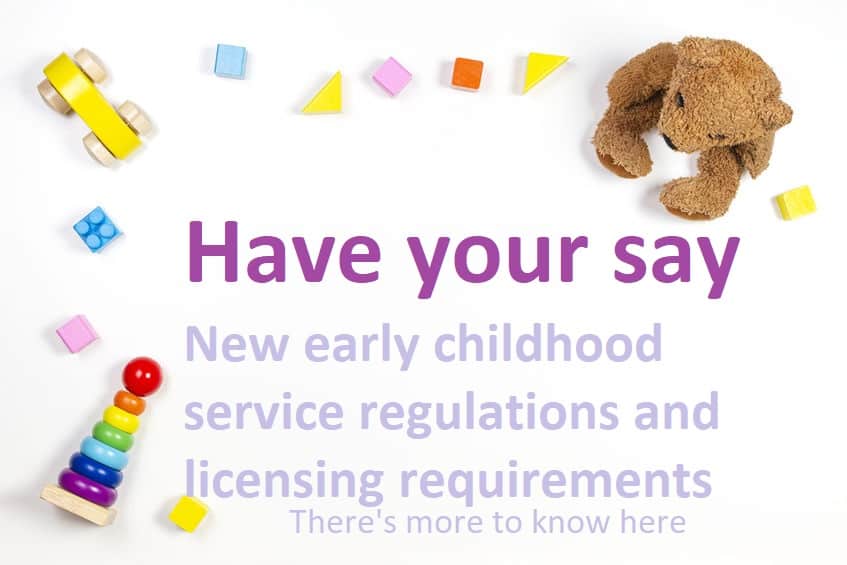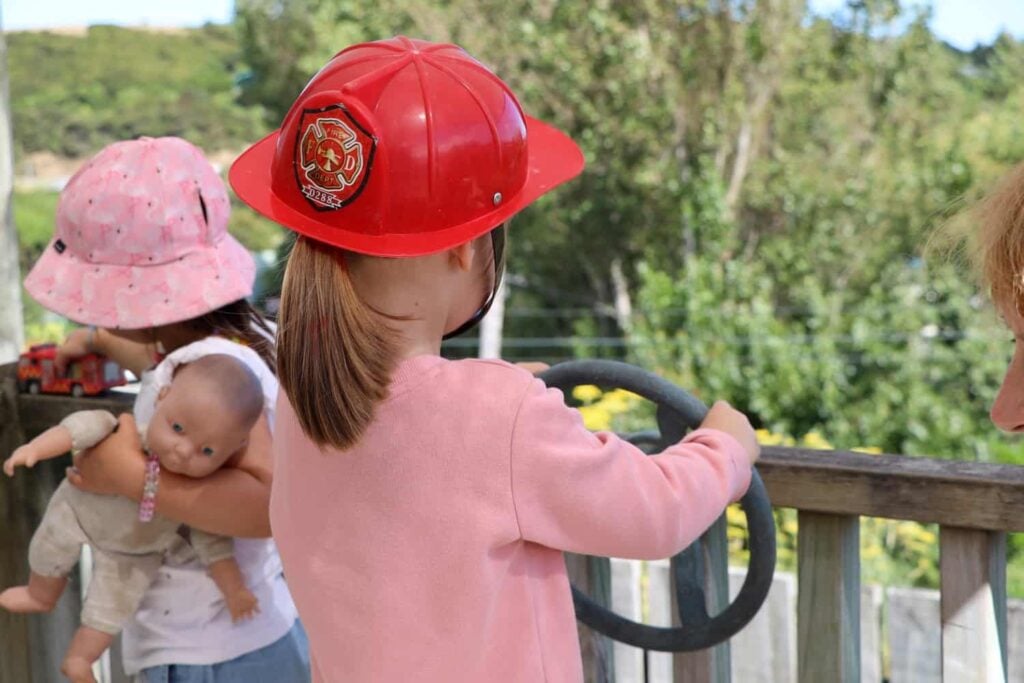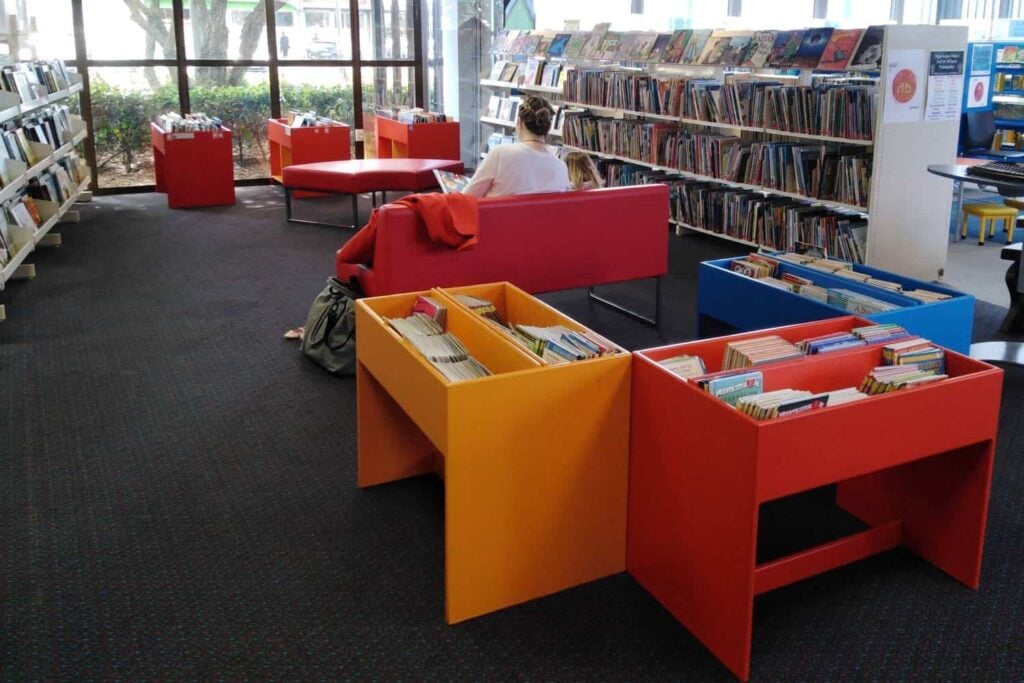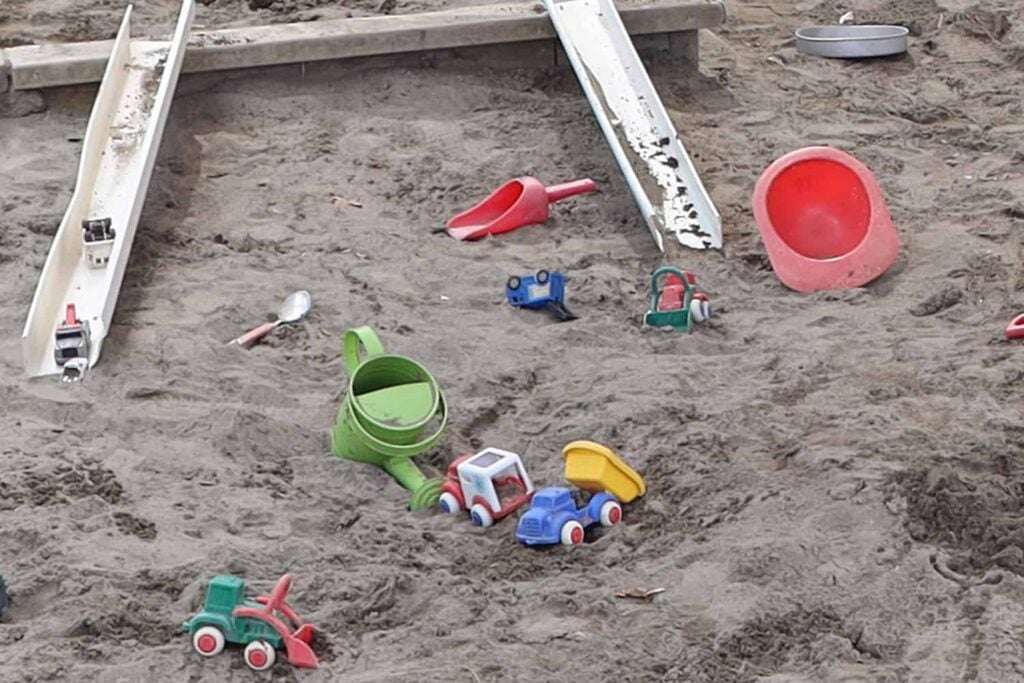Education (Early Childhood Services) Regulations Proposed Changes
NEWS – 24 Sept 2025.
The Ministry of Education is seeking feedback on its draft amendments to the Education (Early Childhood Services) Regulations before the proposal is submitted to Cabinet and progressed through Parliament to become law.
The proposed changes aim to make it easier for service providers to retain a full licence even while operating in known non-compliance, without their licence being affected.
- Raise the threshold for licence reclassification and suspension
- Enable the regulator to make a choice to publicly notify a service’s non-compliance and/or tell parents at the service
- Introduce an option for the regulator to choose when to require services to get specialist help and/or prepare an improvement plan.
Licensing action current steps are:
- Issue a written direction to remedy health and safety risk
- Provisional licence (if not able to meet the requirements for a Person Responsible, or breaches are serious and/or multiple and have not been fixed following investigation and discussion with service provider before a change of licence is issued)
- Suspension (an infrequent option used mainly in cases when its unsafe for children, e.g. abuse has occurred, and may be used also when funding fraud is discovered)
- Cancellation (an infrequent option used mainly when a service is no longer under the control of the service provider e.g. its in the hands of a receiver; or it has not meet conditions of the provisional or suspended licence or shown its not capable of sustaining improvement)
The proposed changes will see more steps added (a more graduated approach):
- Record of non-compliance
- Issue a formal warning
- Issue a written direction to remedy health and safety risk
- May require service to get specialist help (this currently happens but is often provided for free by the Ministry of Education under SELO. It would appear that funding for improvement will be withdrawn and it will be the service provider’s responsibility to pay)
- May require service to implement an improvement plan (this currently happens in an ad hoc way as services placed on a provisional licence tend to have a plan in place for what they need to do to get their full licence restored. However the regulation change will see services with serious or multiple breaches asked to implement an improvement plan whilst retaining their full licence)
- Provisional licence
- Suspension
- Cancellation
There is no plan to introduce regular monitoring or spot checks of early childhood services. Instead, the regulator will continue to rely on reports of serious incidents, complaints lodged by parents (which may become more difficult under proposed changes to licensing criteria), and notifications triggered by a change in service provider requiring a new licence.
There is also no intention to introduce additional penalties, such as fines. Rather, the proposed changes appear designed to ensure that few, if any, services face licensing actions or downgrades.
While the Ministry of Education already holds significant discretion over whether to downgrade a service’s licence, the proposed changes would concentrate even more authority in the hands of a single individual. This new role, Director of Regulation for ECE, would not be required to demonstrate impartiality in decisions affecting service providers and could be subject to influence from the Minister for Regulation.
Notably, these changes to the Education (Early Childhood Services) Regulations have been drafted and released for consultation before the Education and Training (Early Childhood Education Reform) Amendment Bill which is intended to establish the Director of Regulation role has passed into law. The Ministry appears to be operating on the assumption that Minister Seymour’s Amendment Bill will pass through its second and third readings in Parliament without amendment, despite strong criticism from the Children’s Commissioner and numerous submitters.
The Ministry of Education produced a Regulatory Impact Statement on 11 April 2025 to inform Government decisions on these changes. However, this document is not yet publicly available at regulation.govt.nz, so we cannot confirm whether a Child Impact Assessment (CIA) was undertaken.
In our earlier submission, we urged the Ministry for Regulation to conduct a CIA and seek input from health professionals, child protection experts, children’s rights advocates, and international ECE quality specialists before removing safeguards. We cautioned:
“Before decisions are made to remove any rules and requirements when other safeguards are not in place, it is important that you do a Child Impact Assessment (CIA) and obtain feedback from relevant health, child protection, children’s rights, and international experts on ECE quality.
“We caution against rushing to loosen or remove rules and requirements by stripping out regulations as there is a risk of simplifying processes with unintended consequences costing our country thousands or millions of dollars more in the end and jeopardising children’s safety, learning, and lives.”
Your voice matters
Time is short. The Ministry of Education have only given us until midnight Sunday 19 October to read, reflect, and respond to these significant reforms by making submissions.
You can help. Share your thoughts on any or all of the proposals by commenting at the end of this page or joining the discussion on our Facebook page.
To support everyone’s understanding, we’ve created a table (see below) outlining each proposed change.
To provide informed feedback it’s important to also have knowledge and understanding of other changes that are happening:
- The proposed reduction in teaching qualifications.
- The full scope of changes in the Education and Training (ECE Reform) Bill.
- The removal or weakening of many licensing criteria used to assess compliance and support ministry monitoring.
For example, services would no longer be required to prominently display:
- A copy of the regulations and licensing criteria.
- The names and qualifications of adults counted as teaching staff.
- A complaints procedure that informs parents they can contact their local Ministry of Education office directly. Instead, only the name and contact details of a nominated individual within the service will need to be displayed — which could, in some cases, be someone a parent wishes to lodge a complaint against, including for serious concerns such as child abuse.
| Current Regulations | Changes and New Regulations |
|---|---|
| Regulation 15(1) Secretary may reclassify licence as provisional licence (1) The Secretary may, by written notice to the service provider for a licensed service, reclassify a probationary licence or a full licence as a provisional licence, if satisfied that— (a) the early childhood service for which the licence was issued does not comply with these regulations; or (b) the early childhood service for which the licence was issued does not comply with all the conditions subject to which its licence was issued; or (c) a complaint has been lodged against the service provider alleging non-compliance with these regulations, and the Secretary considers that the complaint warrants investigation; or (ca) an incident involving a child has occurred at the early childhood service for which the licence was issued, and the Secretary considers that the incident warrants investigation; or (d) the service provider for a licensed early childhood service has not complied with a written direction from the Secretary under these regulations (other than a written direction issued under regulation 54A) within a reasonable time; or (e) the service provider for a licensed early childhood service has not complied with a written direction from the Secretary under regulation 54A within the time specified in that direction | To be replaced with new Regulation 15(1): (1) The Director of Regulation may, by written notice to a licensed service provider, reclassify the service provider’s probationary licence or full licence as a provisional licence, if satisfied that the licensed service provider— (a) has failed to comply with 1 or more of the following: (i) a written direction to remedy a risk to health and safety given under regulation 29C: (ii) a requirement to employ or engage specialist help imposed under regulation 29D: (iii) a requirement to prepare, implement, and complete an improvement plan imposed under regulation 29E; or (b) has— (i) failed to comply with a requirement of these regulations or a condition of their licence; and (ii) been subject to 2 or more of the following within the previous 12 months: (A) a record of non-compliance kept under regulation 29A: (B) a formal warning issued under regulation 29B: (C) a written direction to remedy a risk to health and safety given under regulation 29C: (D) a requirement to employ or engage specialist help imposed under regulation 29D: (E) a requirement to prepare, implement, and complete an improvement plan imposed under regulation 29E |
| Regulation 15(3) A written notice of reclassification may be given under subclause (1) at any time until the licence being reclassified has expired (including during any period while the licence remains in force after an application for renewing that licence has been made under regulation 37). | To be replaced with: A written notice of reclassification may be given under subclause (1) at any time until the licence being reclassified has expired. |
| Regulation 16(1A) If the Secretary is satisfied that there has been any additional instance of a type described in regulation 15(1)(a) to (e) after reclassifying a probationary licence or a full licence as a provisional licence, the Secretary— (a) may, by written notice to the service provider, specify additional conditions that must be complied with for the revocation of the provisional licence and the return of the probationary licence or full licence, as the case may be; and (b) must, in the notice, specify for each condition the date by which the condition must be complied with. | To be replaced with: (1A) If the Director of Regulation is satisfied that there has been an additional instance of a type described in regulation 29B(1)(a) or (b), regulation 29D(1)(a) or (b), or regulation 29E(1)(a) or (b) after reclassifying a probationary licence or a full licence as a provisional licence, the Director may forward to the licensed service provider a revised provisional licence that— (a) specifies additional conditions that must be complied with for the revocation of the provisional licence and the return of the probationary or full licence, as the case may be; and (b) specifies for each condition the date by which the condition must be complied with. (1B) A revised provisional licence forwarded to the licensed service provider under subclause (1A) replaces the previous provisional licence held by the service provider. |
| Regulation 16(2) A date specified under subclause (1)(b) will usually be a date not more than 3 months after the day on which the notice under regulation 15(1) was given to the service provider | replace “was” with “is” |
| Regulation 16(2A) A date specified under subclause (1A)(b) will usually be a date not more than 3 months after the day on which the notice under subclause (1A)(a) was given to the service provider. | To be replaced with: A date specified under subclause (1A)(b) will usually be a date not more than 3 months after the day on which the revised provisional licence under subclause (1A) is forwarded to the licensed service provider. |
| Regulation 17(2)(a) The Secretary must revoke a provisional licence and, subject to subclause (3), return a full or probationary licence, or instead issue a full licence, if— (a) he or she is satisfied that every condition specified under regulation 16(1)(a) has either— (i) been complied with by the date specified for compliance; or (ii) no longer needs to be complied with; and (b) the provisional licence has not been cancelled. | insert “or (1A)(a)” after “regulation 16(1)(a)”. Reg 17 (1A) (a) A provisional licence remains in force until the Secretary revokes the provisional licence and returns the service’s full or probationary licence, or issues a full licence, under subclause (2) |
| Regulation 17(4)(a) The Secretary must cancel a provisional licence by written notice to the service provider if he or she is satisfied that— (a) any condition specified under regulation 16(1)(a) has not been complied with by the date specified for compliance | Insert “or (1A)(a)” after “regulation 16(1)(a)” Reg 17 (1A) (a) A provisional licence remains in force until the Secretary revokes the provisional licence and returns the service’s full or probationary licence, or issues a full licence, under subclause (2) |
| After Regulation 29 | Will insert new regulation: 29A Record of non-compliance (1) The Director of Regulation may carry out action under this regulation in relation to a licence held by a licensed service provider if satisfied that— (a) the service provider has not complied with a requirement of these regulations or a condition of their licence; and (b) the non-compliance has been subsequently rectified by the service provider; and (c) keeping a record of the non-compliance is warranted in the circumstances. (2) The Director may keep a written record of the non-compliance. (3) The record must contain a brief description of— (a) the non-compliance; and (b) the action taken by the licensed service provider to rectify it; and (c) the Director’s reasons for believing the non-compliance warrants recording. (4) The Director of Regulation must ensure that the licensed service provider is notified as soon as is reasonably practicable after a record of non-compliance is made by the Director |
| Will insert new: 29B Formal warning (1) The Director of Regulation may carry out action under this regulation in relation to a licence held by a licensed service provider if satisfied that the service provider has not complied with, or is not complying with,— (a) a requirement of these regulations; or (b) a condition of their licence. (2) The Director of Regulation may, by written notice, issue a formal warning to the licensed service provider. (3) The notice must state— (a) the reasons for the formal warning; and (b) the steps that must be taken by the licensed service provider by a specified date to avoid further action. (4) The notice may contain any other information that the Director of Regulation thinks appropriate. | |
| Will insert new: 29C Written direction to remedy risk to health and safety (1) The Director of Regulation may carry out action under this regulation in relation to a licence held by a licensed service provider if satisfied that— (a) the service provider has breached or is likely to have breached— (i) a requirement of these regulations; or (ii) a condition of their licence; and (b) the non-compliance poses a risk to the health and safety of any person. (2) The Director of Regulation may, by written notice, direct a licensed service provider to carry out a specified action to remedy the risk to the health and safety of any person within— (a) 24 hours; or (b) any longer period up to a maximum of 10 working days. (3) A direction under subclause (2)(b) may be given only if the Director is satisfied that the licensed service provider can continue to operate the service without risk to the health and safety of any person. (4) The direction must specify the date (in accordance with subclause (2)) by which the licensed service provider must carry out the specified action. (5) The Director of Regulation may, in the written notice, impose any conditions that the Director thinks fit relating to— (a) remedying the risk to health and safety; or (b) the continued operation of the service | |
| Will insert new: 29D Specialist help (1) The Director of Regulation may carry out action under this regulation in relation to a licence held by a licensed service provider if satisfied that the service provider has not complied with, or is not complying with, — (a) a requirement of these regulations; or (b) a condition of their licence. (2) The Director of Regulation may, by written notice, require the licensed service provider to employ or engage specified specialist help for the purpose of facilitating compliance with these regulations or applicable licence conditions, or both. (3) The notice must specify— (a) the non-compliance that the specialist help must address; and (b) the date by which the non-compliance must be addressed. (4) The notice may do 1 or both of the following: (a) identify particular persons or types of persons whom the licensed service provider must employ or engage: (b) require the licensed service provider to give the Director of Regulation a report or reports (for example, a progress report and a final report) on the specialist help— (i) by the specified time; or (ii) at the specified intervals; or (iii) both. (5) A licensed service provider who receives a notice under subclause (2) must— (a) employ or engage the specialist help as soon as is reasonably practicable; and (b) pay the fees and reasonable expenses of the person employed or engaged to provide specialist help; and (c) if applicable, provide a report to the Director at the time or intervals specified in the notice. (6) The Director of Regulation may amend or revoke 1 or more requirements specified in the notice, including the time frame for implementing 1 or more requirements. (7) If the Director of Regulation amends or revokes any requirements specified in the notice, the Director must notify the licensed service provider in writing of— (a) the amendment or revocation; and (b) the reasons for the amendment or revocation. | |
| Will insert new: 29E Improvement plan (1) The Director of Regulation may carry out action under this regulation in relation to a licence held by a licensed service provider if satisfied that the service provider has not complied with, or is not complying with,— (a) a requirement of these regulations; or (b) a condition of their licence. (2) The Director of Regulation may, by written notice, require the licensed service provider to prepare, implement, and complete an improvement plan. (3) The notice must specify— (a) the non-compliance that the improvement plan must address; and (b) the date by which the non-compliance must be addressed. (4) A licensed service provider who receives a notice under subclause (2) must prepare a draft improvement plan within 15 working days after receiving the notice and submit it to the Director of Regulation for approval. (5) The Director of Regulation may negotiate with the licensed service provider to agree an improvement plan, but if, after a reasonable period, the licensed ser vice provider and the Director have not agreed a plan, the Director may give notice to the licensed service provider that the Director will approve a particular plan and require it to be implemented. (6) When the Director of Regulation has approved a particular improvement plan, the licensed service provider must implement it in accordance with its terms, unless the Director directs otherwise. (7) The Director of Regulation may amend or revoke 1 or more terms of the improvement plan, including the time frame for implementing or completing all or part of the plan. (8) If the Director of Regulation amends or revokes a term of the improvement plan, the Director must notify the licensed service provider in writing of— (a) the amendment or revocation; and (b) the reasons for the amendment or revocation | |
| Will insert new: 29F Public notice of non-compliance Mandatory public notification (1) The Director of Regulation must give public notice of non-compliance by a licensed service provider with a requirement of these regulations or a condition of their licence if the Director has taken 1 of the following actions in relation to the licence: (a) the licence has been reclassified as a provisional licence under regulation 15: (b) the licence has been suspended under regulation 30: (c) the licence has been cancelled under regulation 32. Discretionary public notification (2) The Director of Regulation may give public notice of non-compliance by a licensed service provider with a requirement of these regulations or a condition of their licence if satisfied that— (a) it is in the public interest to do so; and (b) the circumstances in subclause (3) apply. (3) The circumstances are that the Director has taken 1 or more of the following actions against the licensed service provider in relation to their licence: (a) the service provider has been given a written direction to remedy a risk to health and safety under regulation 29C: (b) the service provider has been required under regulation 29D to employ or engage specialist help: (c) the service provider has been required under regulation 29E to prepare, implement, and complete an improvement plan. Requirements of public notice. 4) Public notice given under subclause (1) or (2) must contain— (a) a summary of the action taken by the Director; and (b) if applicable, a statement that action has been taken by the Director under— (i) regulation 17(1)(a) or (b); or (ii) regulation 31(5)(a) or (b). (5) However, the public notice must not contain personal information (within the meaning of section 7(1) of the Privacy Act 2020). | |
| Regulation 30(1)(a) 1) The Secretary may, by written notice to the licensed service provider, suspend the service’s licence, if satisfied on reasonable grounds that— (a) it is not in the interests of the children attending or participating in the service for the service to continue to operate. | To be replaced with: a) both of the following apply: (i) an immediate risk to the health, safety, or well-being of children attending or participating in the service exists; and (ii) it is not in the interests of the children attending or participating in the service for the service to continue to operate. |
| Regulation 32(1)(e)(i) Subject to subclause (2), the Secretary must, by notice in the Gazette, cancel the licence for an early childhood service if the Secretary is satisfied that— (e) the service provider for a licensed early childhood service— (i) has previously had a probationary or full licence reclassified as a provisional licence (unless the licence was reclassified on a ground listed in regulation 15(1)(c) or (ca) and the Secretary was not in that case satisfied that non-compliance with these regulations had occurred). | To be shortened/replaced with: (i) has previously had a probationary or full licence reclassified as a provisional licence. |
| Revoke/Remove Regulation 54A (Secretary may direct service provider to remedy immediate health and safety risk) (1) The Secretary may, in writing, direct the service provider of a licensed service to remedy any thing or activity that is an immediate risk to the health and safety of any person (an immediate health and safety risk) and that, in the opinion of the Secretary, — (a) is, or is likely to be, a breach of these regulations; and (b) is capable of being remedied safely while the relevant early childhood service continues to operate. (2) In directing the service provider of a licensed service to remedy an immediate health and safety risk, the Secretary may impose any conditions that the Secretary thinks fit relating to the risk and the continued operation of the service. (3) The direction must include the date by which the service provider is to have remedied the immediate health and safety risk, which must be a date no later than 10 working days after the date of the direction. (4) For the avoidance of doubt, a failure to comply with a written direction under this regulation may result in the reclassification of the service’s licence as a provisional licence under regulation 15 or the suspension of the service’s licence under regulation 30. (5) This regulation does not limit the powers of the Secretary to reclassify a licence as a provisional licence under regulation 15 or suspend a licence under regulation 30. | |
| After regulation 59 | Will insert new: 59A Director may give public notice, or inform parents and caregivers of, investigation of complaint or incident (1) The Director of Regulation may give public notice of an investigation into a complaint against, or an incident involving, a licensed service provider if— (a) a complaint has been made against the licensed service provider alleging non-compliance with a requirement of these regulations or a condition of their licence, and the Director considers that the complaint warrants investigation; or (b) an incident involving a child has occurred at the premises of the licensed service provider, and the Director considers that the incident warrants investigation. (2) The Director of Regulation may, instead of, or in addition to, taking action under subclause (1), require the licensed service provider to inform parents or caregivers of children attending the service that an investigation into a com‐ plaint or an incident (as the case may be) is being carried out by the Director or the licensed service provider, or both. (3) Public notice given under subclause (1) must contain a summary of the incident or complaint being investigated. (4) However, the public notice must not contain personal information (within the meaning of section 7(1) of the Privacy Act 2020 |
| After regulation 39A(3)(f) (3) The Secretary may exercise 1 or more of the following powers: (f) suspend, for a period not exceeding 3 months, compliance with 1 or more of the requirements specified in regulation 28 for licensed home-based education and care services: | Will insert new: (fa) extend, by not more than 3 months, the date for compliance with any requirement imposed under regulation 29B, 29C, 29D, or 29E |
You can help. Share your thoughts on any or all of the proposals by adding your comment/s below or on our Facebook page, go to: https://www.facebook.com/OECE.nz











One Response
Kia ora,
I am an Early Childhood Senior Lecturer at AUT, and my research focuses on political dialogues and voices, including how policies and systems shape teachers, whānau, children, and communities to have a say. I’ve been looking through the Ministry’s proposed changes to the Education (Early Childhood Services) Regulations, and I find them deeply concerning.
The reforms lower teacher qualifications, allow services to continue operating even when there are serious breaches, and give a huge amount of discretion to a single Director of Regulation. On top of that, the process is being rushed, with very little time for consultation.
Looking across the Tasman, we can see the dangers of weakening these safeguards. In Victoria, serious incidents have occurred in centres with minimal staffing and underqualified teachers, including cases where very young children were (sexually) abused (Guardian Australia, 2 July 2025). These accounts are shocking, reflecting the real risks when qualifications, supervision, and oversight are reduced. This is not the future we want for ECE here.
New Zealand has long been seen as a global leader in early childhood education. That reputation was built on strong regulations, well-qualified teachers, safe learning environments, and systems that give voice to teachers, children, whānau, and communities. The aspects of quality that allowed us to reach that standard, teacher qualifications, clear compliance mechanisms, transparency for families, are being removed in these proposals. It is worrying to see this happening when other countries are already showing us the consequences.
Early childhood education matters. It shapes children’s learning and wellbeing, supports families, and strengthens communities. Given how critical this work is, changes to regulations should not be rushed. They deserve careful consideration, broad consultation, and a commitment to maintaining quality and safety.
I urge the Ministry to reconsider these reforms and ensure that any changes:
Maintain robust qualification requirements for teachers
Keep children safe through adequate staffing and supervision
Protect and strengthen the voice of teachers, children, whānau, and communities
Retain transparency, accountability, and strong compliance mechanisms
Allow sufficient time for proper consultation and stakeholder input
The current proposals, if implemented, risk undermining the very aspects of ECE that have made New Zealand a world leader. I strongly encourage changes that safeguard quality, safety, and the voice of teachers, children, whānau, and communities.
Ngā mihi nui,
Fiona